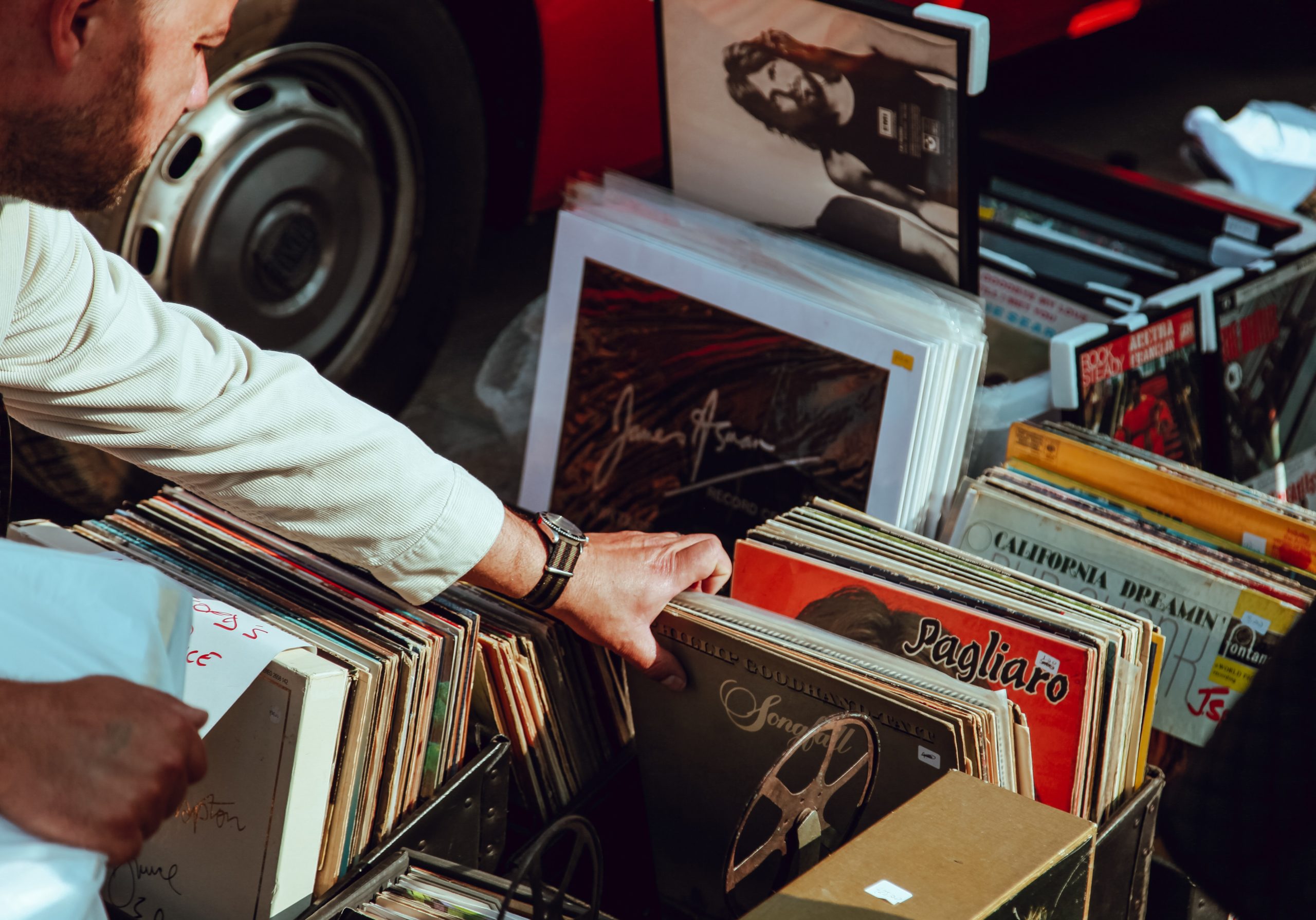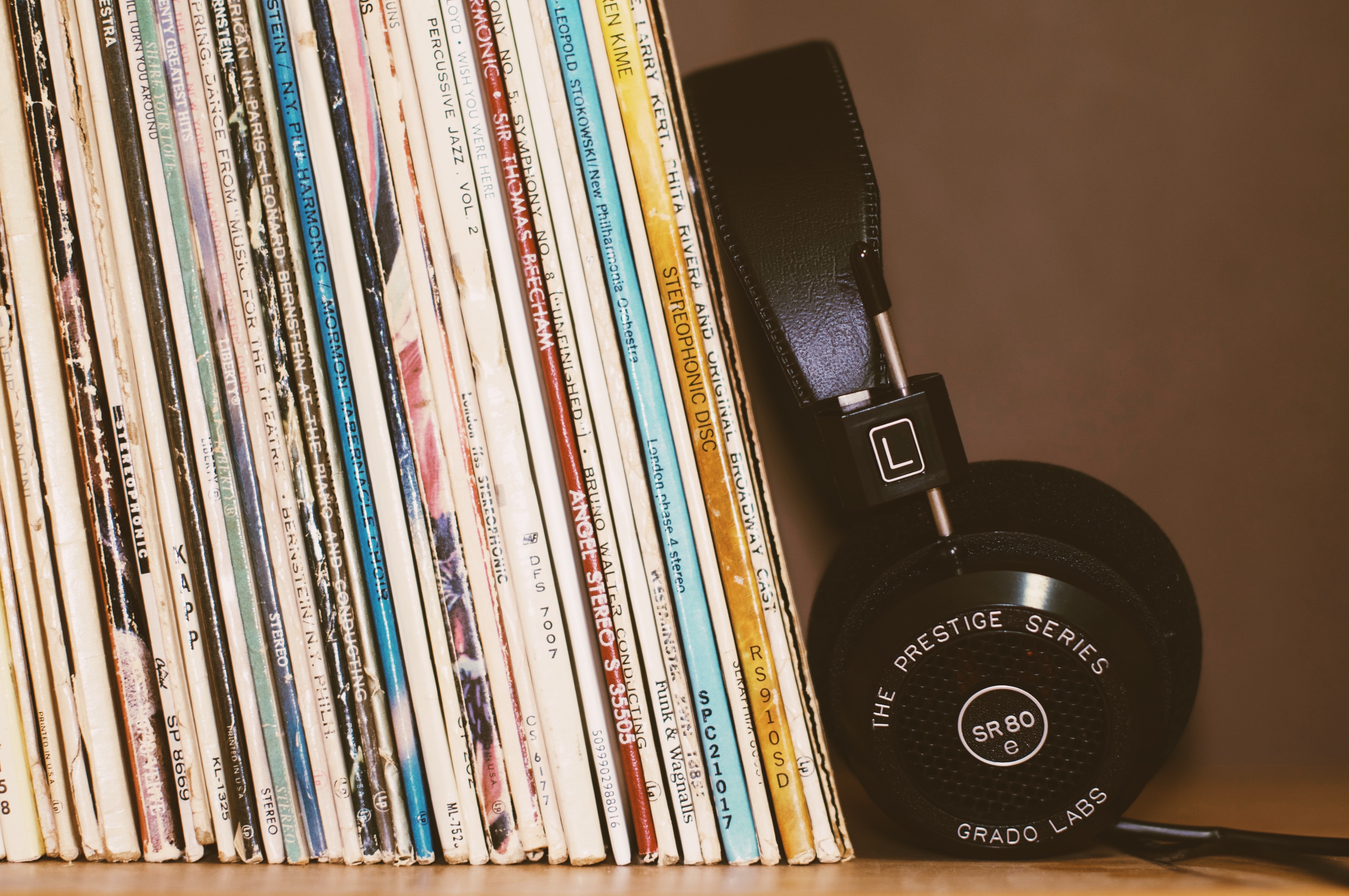How to Keep Vinyl Records Safe

After you've decided where you'll keep your records, you'll need to figure out how you'll keep them. Vinyl records can be stored in two ways: short-term storage and long-term storage.

Vinyl record storage for a limited time
You should utilize a short-term storage option for recordings that you listen to frequently. These can be kept on a shelf beneath your turntable and pulled out as needed. The temperature for these should be closer to 70 degrees, but the humidity should not be too high. When you use them frequently, you won't have to be as careful about how you store them. That is, if you clean your records correctly before and after each play and do not have a vast quantity of records on your shelf. Inner and outer sleeves are available for purchase at The Sound of Vinyl to help store and protect your recordings. Between the vinyl and the cardboard cover are inside sleeves. They're constructed of anti-static paper or plastic, and they help keep dust off your vinyl. A paper sleeve is usually included with records, however the plastic sleeves are significantly preferable. In fact, over time, utilizing paper covers can harm your recordings. If at all possible, avoid them and opt for plastic instead. The cardboard album cover and the vinyl inside are both protected by outer sleeves, which are usually made of plastic. If you buy vintage records, the inside sleeve is more likely to survive than the outer sleeve, but both are useful for protecting your LPs.
Vinyl record storage for the long haul
Unfortunately, the majority of people are unaware of how to properly keep their vinyl collections throughout time. If they won't be touched for a year or longer, you'll need to find a more permanent storage solution. When putting your documents into storage, there are a few things to bear in mind, especially if you have a lot of them.
Pressure
When it comes to keeping vinyl records, the most prevalent mistake is failing to consider the pressure that is applied to them. A 12-inch LP is usually more than 5 ounces in weight. If you have 50 of these on your shelf, the last LP in line is under 15-20 pounds of pressure. That won't be a problem for a minute or two. If you're going to store records for an extended period of time, ensure sure none of them are under too much pressure. This can result in warping, groove distortion, and other issues.
Shelving
Because of the pressure issue, you should try to avoid tossing all of your documents into a bin as much as feasible. They will continue to tumble and press on themselves as time passes, potentially causing long-term injury. Instead, choose a shelving system that allows you to divide parts of records. You don't want more than roughly 15 albums leaning against each other on a shelf, as this may cause undue pressure.You can use a wood shelf instead of a metal shelf to reduce the amount of static. This will help to prevent static electricity and dust buildup on your records.
Dividers
If you don't have a lot of shelves to segregate your records or vinyl record storage box, invest in some robust dividers. These are easy to get by on the internet. To assist support your records, all you need is some thick wood to place between them. Instead than leaning to one side on the shelf, LPs should stand up straight. This will assist to relieve some of the burden on the final records. A separator every 4-6 inches will help you achieve this. Furthermore, you can utilize these to assist in the organization of your collection. Each divider can be labeled by genre or used to sort your records alphabetically. This is a fantastic solution because it solves two problems at once. Vinyl Me Please has a wonderful DIY guide for making your own record dividers if you want to give it an attempt. This may not be for everyone, but it can save you money while also being a lot of fun.
Cleaning
One final point on long-term storage: make sure they're clean before putting them away. The Sound of Vinyl includes a comprehensive record cleaning guide, including instructions on how to deep clean old, worn-out records. If the records are new, clean them with an anti-static brush to remove any dust or dirt from the grooves. If that rests for a long time, it may work its way too deeply into the record to be removed, and the stylus will embed the dust into the LP the next time you play it. When you play the LP again, you'll notice a lot of crackling and skipping. If the record isn't in terrific condition, you'll want to give it a thorough cleaning. For further information, refer to our guide.
